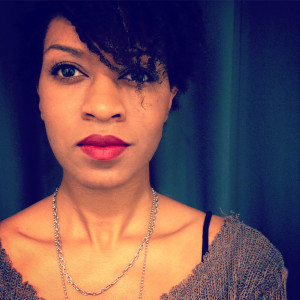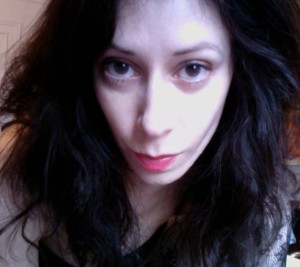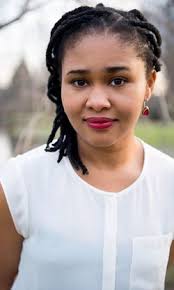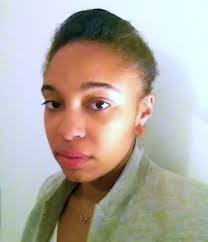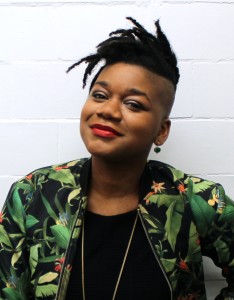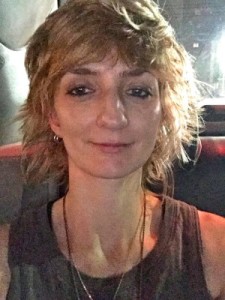FPP spoke with poet and Incorrect Merciful Impulses author Camille Rankine about her relationship to New York City, the life, warmth, and character of Harlem, the exhaustion of existing as a Black person in the US, and how poetry can help “open up the world a little bit for each other.” See Rankine read on Tuesday, September 20th at the FPP Season Premiere at Shrine in Harlem, 7pm.
You’re from Portland, Oregon, but you live in Harlem now. How much of your time in NYC has been spent uptown? Can you talk about your relationship to this place? How has the neighborhood changed since you arrived?
I’ve lived uptown for all of my time in NYC, actually. First in Morningside Heights, when I was at Columbia University. Then Washington Heights. And I’ve been in Harlem for about seven years now. Living in Harlem when most of my writer peers are in Brooklyn feels a little like an act of defiance, but I love it here. It’s a beautiful neighborhood, and it feels like a community, which is different from a lot of Manhattan. It’s full of life and warmth and character. It is changing, just like any neighborhood in New York. There are new condos, new restaurants, and, I’ll just say it, a lot more white people. There’s a Whole Foods opening down the street from me next year, which feels very strange, and makes me worry that rents are about to shoot up. But I hope it’ll still feel like Harlem, even after it opens—just with more organic produce.
How has the place you live in entered and influenced your poetry?
I think it’s impossible for the place that I live not to influence my poetry. I don’t know if Harlem, specifically, has affected my work, but I know New York has. It’s been my landscape and my reality for a good part of my life, but one that I never feel entirely at home with, even if it is my home. That’s a little true for me wherever I go, I think, because my parents are immigrants, and I was raised in a Jamaican household. So that tension is on my mind a lot, and I think it appears in my work as well.
In your poem “Survival Guide for Animals Born in Captivity,” in response to the shooting of Mike Brown and the events of the summer of 2014, you write, “The trick is your body itself/ is a violence.” Can you talk about the ways that the body enters your work, particularly the politicized body, the Black body, and the female and intersectional body?
I wrote that poem in the summer of 2014, after deaths of Eric Garner and Michael Brown, but I didn’t really write it in response to those events, exactly. I wrote it in response to the fact that deaths like theirs, and the fear that black men and women have of dying at the hands of those who are supposed to protect us—that’s the reality that black Americans have been living in for generations. And that summer, it seemed like the rest of America was just beginning to see that. Black people in America are raised to understand that their bodies will be interpreted as dangerous objects to be feared and mistrusted. And that we have to act accordingly, in order to keep ourselves safe. I’ve been thinking a lot about this lately, and about what it means when your body communicates something you never intended. That’s something that’s been coming into my newer work.
How has your work been going in the wake of the 2016 shootings and ongoing police violence against Black and brown bodies? Are you finding that justice themes are again entering your work, or are you, like (past FPP reader) the poet Morgan Parker wrote in her Instagram feed this summer, “over staying woke,” given how ongoing and relentless the violence seems?
My entire writing life I’ve been writing in the wake of shootings and ongoing police violence against black and brown bodies. This is not new. So I suppose I find writing poetry the same as ever. I don’t know the context of Morgan’s comment on Instagram (though I do know her incredible poem “If You Are Over Staying Woke”), but I imagine what she meant is that she’s tired. And yeah, I’m tired, too. It can be exhausting to exist in a country whose systems of power want you servile, invisible, or dead.
What powers do poets possess to respond to insurgent moments of change in society? How can, and do, poets help the movement towards justice? And do you see this as part of your role as poet?
What I hope for poetry is that by writing it and by reading it we can open up the world a little bit for each other. Audre Lorde said, “We have to consciously study how to be tender with each other until it becomes a habit,” and maybe poetry can be a part of forming that habit. Maybe by reading each other’s words, we can become more real with one another. We can become more tender. That’s one step toward justice, I think.

